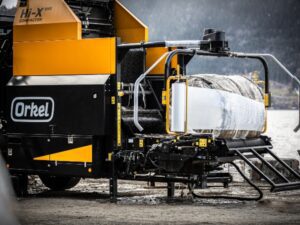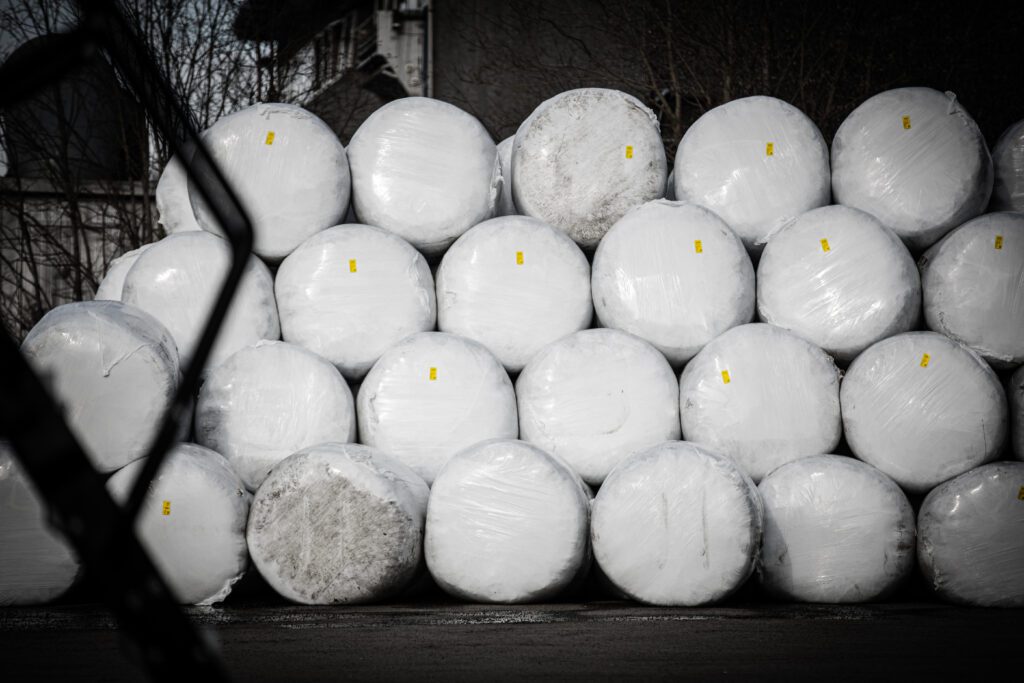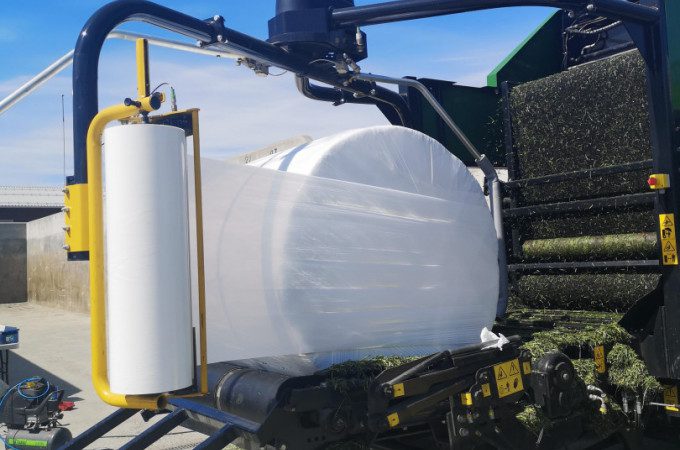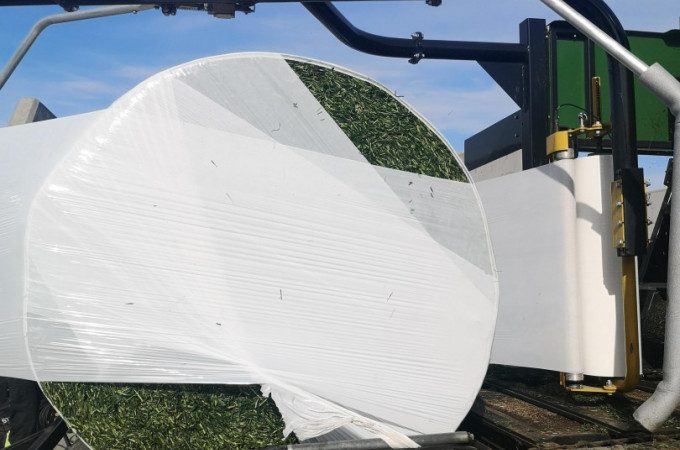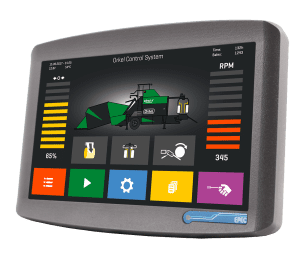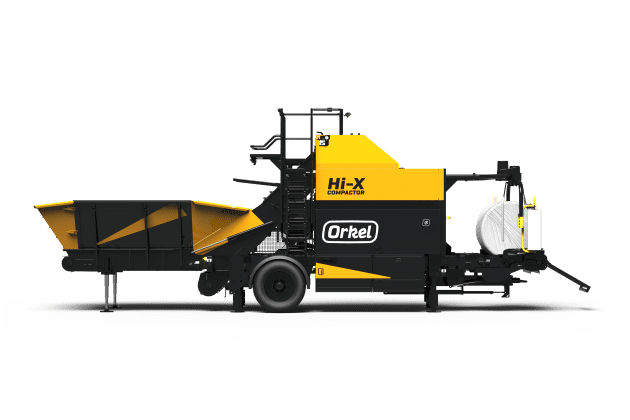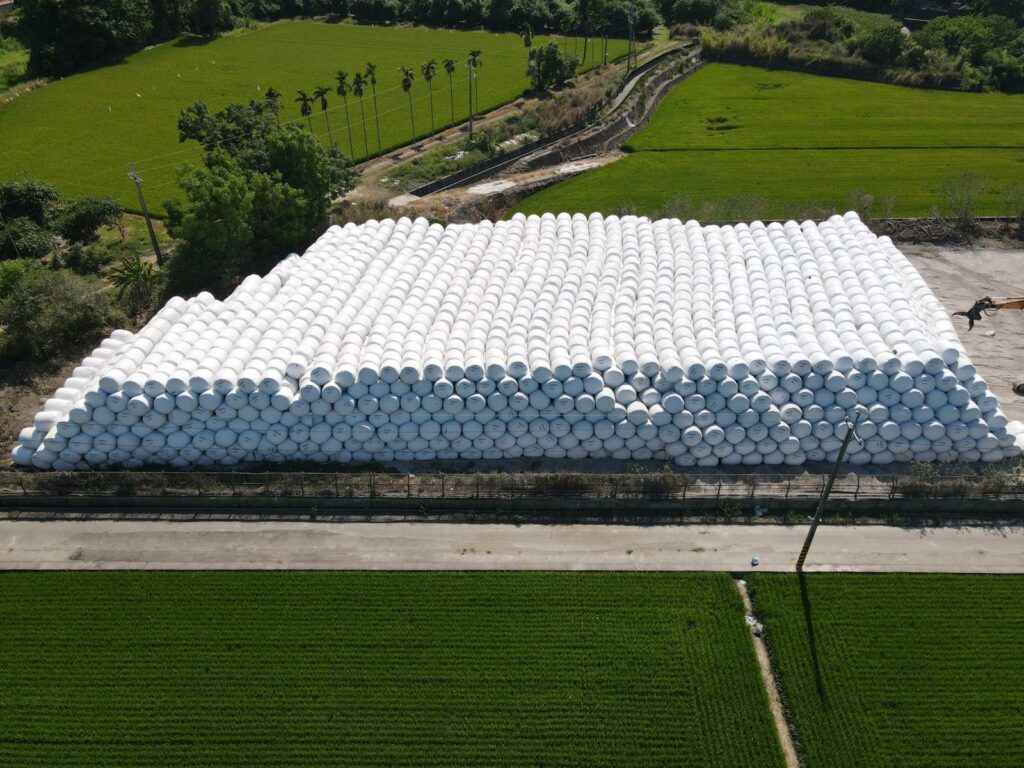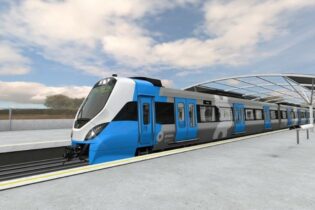Whether it is going to a landfill or a recycling facility, waste should be compacted for easy handling and efficient transportation.
South Africa is quickly running out of landfill airspace, and industry experts have warned that the country is on the verge of a waste crisis. Government – through the revised National Waste Management Strategy 2020 – is actively developing legislature that furthers the concept of a circular economy and encourages the collection and recycling of waste materials. Applying this strategy, it is expected that 45% of waste will be diverted from landfills by 2025. However, with an increasing amount of waste being diverted, there is a need to consider how this waste will be transported, stored and utilised. Baling recyclable materials will assist not only in creating clean recycling goods but also in reducing the carbon footprint and minimising material volume. Built to bale a wide variety of bulk or chopped materials, the newly launched Orkel Hi-X evo compactor is set to rival all other balers currently on the market. Norway’s Orkel – a developer of high-quality heavy machinery for agriculture and industry – together with its local distributor, Agriman, launched the first industrial Orkel machine, the Hi-X evo compactor, in Cape Town earlier this year. “The Hi-X evo compactor is an improvement on our best compactors. The unique design of the technical details, like the auto-greasing of bushings and auto-oiling of chains, makes the compactor exceptionally durable – resulting in low maintenance and life-cycle costs,” says Miriam Gjønnes Karterud, global industry sales manager at Orkel. Baling your waste According to Francois Burger, managing director at Agriman, there are numerous benefits to baling your waste, whether your waste goes to landfill or for recycling. “On a landfill site, you will be able to save on airspace because baling will reduce the need for cover material, which usually takes up to 30% of airspace. Additionally, it will reduce windblown litter, especially in windy cities, like in the Western Cape.” Leachate formed by rainwater penetration into conventional landfills is drastically reduced as the plastic-wrapped bales prevent any water ingress into the waste. Burger adds that storing waste in bales, instead of in open containers, ensures that no waste is lost during prolonged storage and removes the possibility of toxic run-off and hazardous gases leaking into the soil. Moreover, baling your waste at a high density reduces the total volume of waste, lowering the required storage space. “That is why we are so excited about what this machine can offer the South African waste management industry. From the uniformity of the bales to the quality of the product it produces, we anticipate that it will help develop a more efficient waste stream cycle,” says Burger. From bicycles to bales What began in 1949 as a modest producer of small toys and tricycles for local customers has now become a global supplier of high-quality machinery. Today, the Orkel Group is an established, resilient and pioneering supplier of compactors and transport equipment represented in over 60 countries across the globe. Additionally, the company is one of the largest manufacturers in its segment in Norway and has a unique position within the domestic market. Revolutionary partnerships Orkel has earned critical acclaim and has a reputation for high quality through experience and innovative design. Quality, innovation, and sustainability are ideals they work towards – ideals which attracted the local waste management company Agriman. Agriman, with 34 years’ experience in the beneficiation of organic waste streams, is a market leader in developing value chains for waste products in circular economies. On introduction to Orkel, Agriman immediately saw the potential for the Orkel industrial balers in the South African waste market, not only as a solution to logistical challenges associated with waste recycling, but as a means to reinvent landfills. GreenCape’s 2021 Waste Market Intelligence Report states, “Most of the Western Cape province is experiencing landfill airspace pressures. Of the 25 municipalities, 22 have less than five years of airspace left. The lack of available airspace in neighbouring municipalities will likely result in cross-border movement of waste between municipalities.” This is most probably the norm for South Africa and in what better way than utilising intermodal transport systems with wrapped bales from an Orkel to address this logistical and airspace challenge? When it comes to medical waste with limited landfill options, resulting in longer transport legs, there is definitely no better way to compact and contain this specific waste stream than to bale and wrap it with an Orkel. This allows for longer retention time on-site and improves density for transport optimisation. Today, Agriman is proud to offer the Orkel industrial compactors to the South African waste industry. Tailor-made to meet your needs Orkel offers two different industrial compactors with different abilities depending on capacity demand and material conditions. The Hi-X compactor is suitable for fine materials such as SRF (solid recovered fuel) and RDF (refuse-derived fuel). For maximum capacity combined with rougher materials such as MSW (municipal solid waste), household waste, or shredded landfill waste, the Hi-X evo is the ideal pick. The feed hopper is specially designed for larger fragments and the chamber opening is bigger to avoid blockages “Baling is the most efficient way to handle bulk material. The Hi-X will help to reduce the volume of almost any bulkmaterial by up to 70%, which gives you the ability to store more material in less space, in terms of both transport and storage,” asserts Gjønnes Karterud. The Orkel bale size is optimised for the loading of bales into lorries, containers (44 units in one 40 ft container), ships and more. The closed bale also offers transport without odour or losses. “Orkel bales offer a high-quality and stable conservation. This is due to the tight wrapping, together with the fact that oxygen is removed from the material during the compaction process. By limiting oxygen in the bale there will also be reduced odour and prevention of fire,” Gjønnes Karterud explains. Simplified operation The Orkel compactors are operated using hydraulics, with power being supplied by either a tractor or an electric motor. The Hi-X control system is the new generation of electronics and control units, which – together with the hydraulic system with proportional valves – provides major advantages. The Orkel touch control system offers the following benefits: • Easy to use: Intuitive pictures and a touchscreen make it easy to understand and run the machine. The symbols and pictures overcome language barriers and remove potential operator errors. Wide viewing angles and high brightness offer good readability, even in direct sunlight. • Provides improved control: In cases where the machine runs automatically, you will always track the number of bales made. You may choose to control and adjust it for your specific needs, as all functions may be controlled from the display. • Optimises the process: The machine comes with several programs as factory presets for different materials. In addition, you can make your own adjustments and save them as different baling programs for efficient baling initiation. • Robust and reliable: The electronics hardware is developed for heavy industries like mining and forestry, and is reliable in any conditions. Contained in a close-fitting aluminium housing, the screen is waterproof, dust-tight and endures cold, heat, vibration, moisture and other impacts. Additionally, Orkel compactors come with a weighing system and Orkel Telematics. This gives the ultimate overview of what material has been baled, where it’s been baled,tonnes baled per hour and the overall status of the compactor. Easy handling The Orkel Hi-X compactor transforms bulk material into easy-to-handle round bales, using nothing but compaction and polyethylene film wrapping. This makes removing the wrap both easy and problem-free, as there are no metal bands or net to get stuck in machinery components. “Additionally, together with the acknowledged packaging company, Aspla, we are offering a wrapping film made of up to 35% recycled plastic. This product better utilises waste resources, while also providing top-quality conservation,” says Gjønnes Karterud. The benefits of baling waste are numerous: it prevents toxic run-off and hazardous gasses, reduce volumes in both transport and storage, enables the storing of bales in a greater variety of locations, and simplifies logistics while assuring cost-efficient transport. The process The high-density baling process consists of four steps:
- Transport to chamber: Bulk material is loaded either from a factory conveyor belt, front-end loader or directly offloaded from a lorry. The material is transported from the feeding table by an elevator into a compression chamber using a robust chained conveyor system with steel carriers.
- Compression: Two specially designed belts inside the chamber prevent spillage while the material is compressed. Hardox steel plates on both sides of the chamber prevent wear and tear. High-quality, automatically lubricated bushings prevent dust and moisture damage, positioned for easy maintenance and replacement.
- Wide film wrapping: The bale is wrapped in wide film to allow it to maintain its shape and density. An air pressur cleaning system ensures consistent, high-quality operation.
- Wrapping: An adjustable number of film layers seals the material in a compact bale on the wrapping table, maximising the storage and handling potential.


